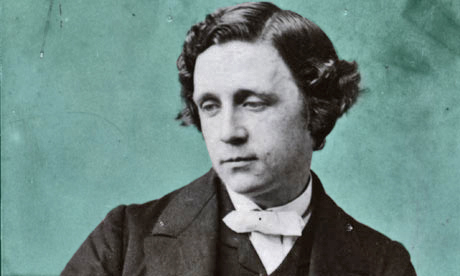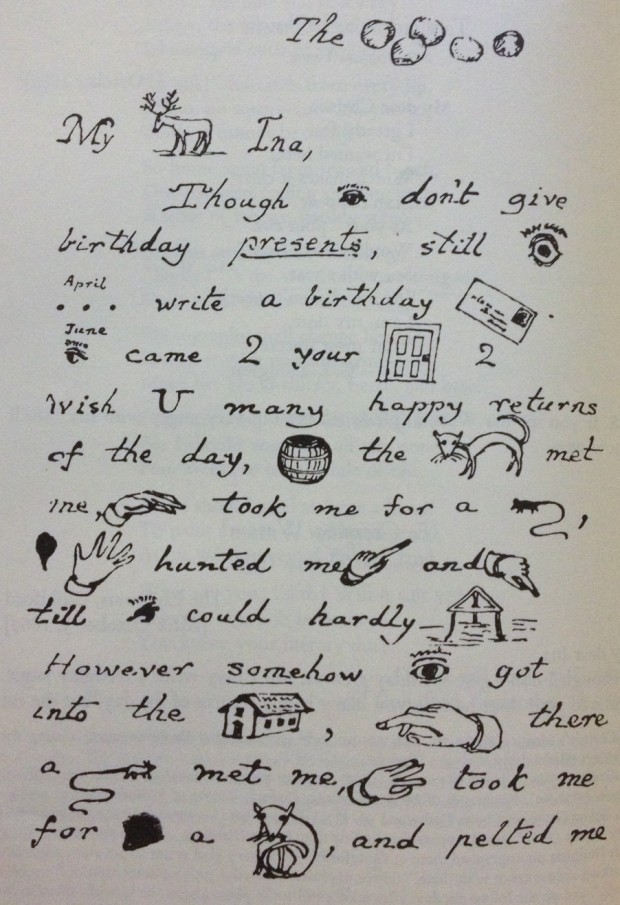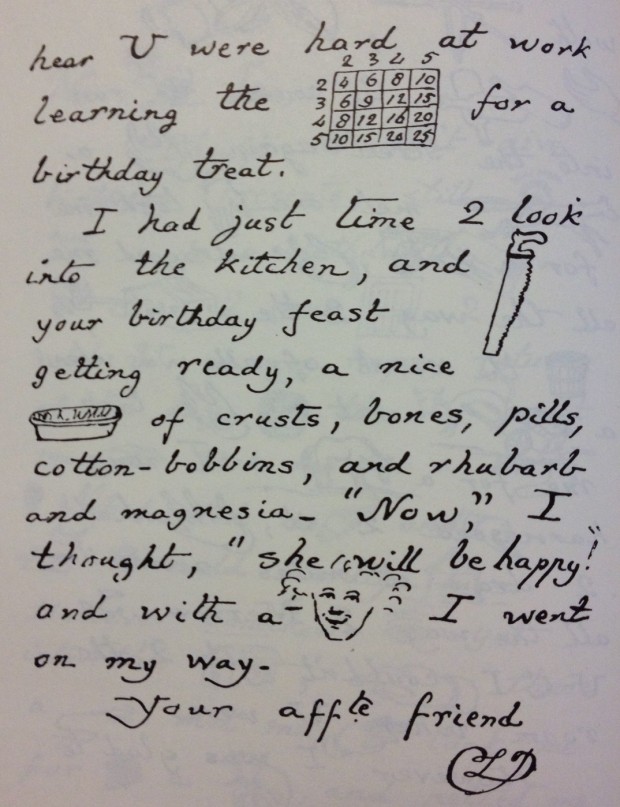
For thirty-seven years, Charles Lutwidge Dodgson—better known as Lewis Carroll—kept a meticulous record of letters sent and received, complete with a précis, date, and entry number. This register recorded an astonishing 98,721 letters sent, most of them brimming with his characteristic puzzles, puns, jokes, and ciphers. Some of his most delightful letters were written to children. Here, Dodgson sends Georgina Watson an illustrated letter on her birthday, explaining why he could not be with her to celebrate.
To Georgina Watson



The Chestnuts, Guildford
[After October 5, 1869]
My dear Ina,
Though I don’t give birthday presents, still I may wish you many happy returns of the day, but the cat met me, and took me for a mouse, and hunted me up and down till I could hardly stand. However somehow I got into the house, and there a mouse met me, and took me for a cat, and pelted me with fire-irons, crockery, and bottles. Of course I ran into the street again, and a horse met me and took me for a cart, and dragged me all the way to the Guildhall, but the worst of all was when a cart met me and took me for a horse. I was harnessed to it, and had to draw it miles and miles, all the way to Merrow. So you see I couldn’t get to the room where you were.
However I was glad to hear you were hard at work learning the multiplication tables for a birthday treat.
I had just time to look into the kitchen, and saw your birthday feast getting ready, a nice dish of crusts, bones, pills, cotton-bobbins, and rhubarb and magnesia. “Now,” I thought, “she will be happy!” and with a smile I went on my way.
Your affectionate friend,
C.L.D.
From The Letters of Lewis Carroll, edited by Morton N. Cohen. New York: Oxford University Press, 1979.
FURTHER READING
Countless pieces have been written on Charles Dodgson’s relationship with language; this one explores his specific fascination with letters, and how it influenced his fiction.
Smithsonian magazine published an article about Lewis Carroll’s evolving reputation as a writer. The full text is available online here.


